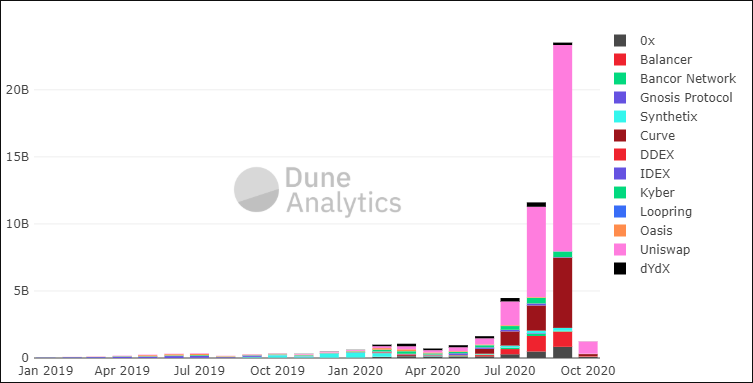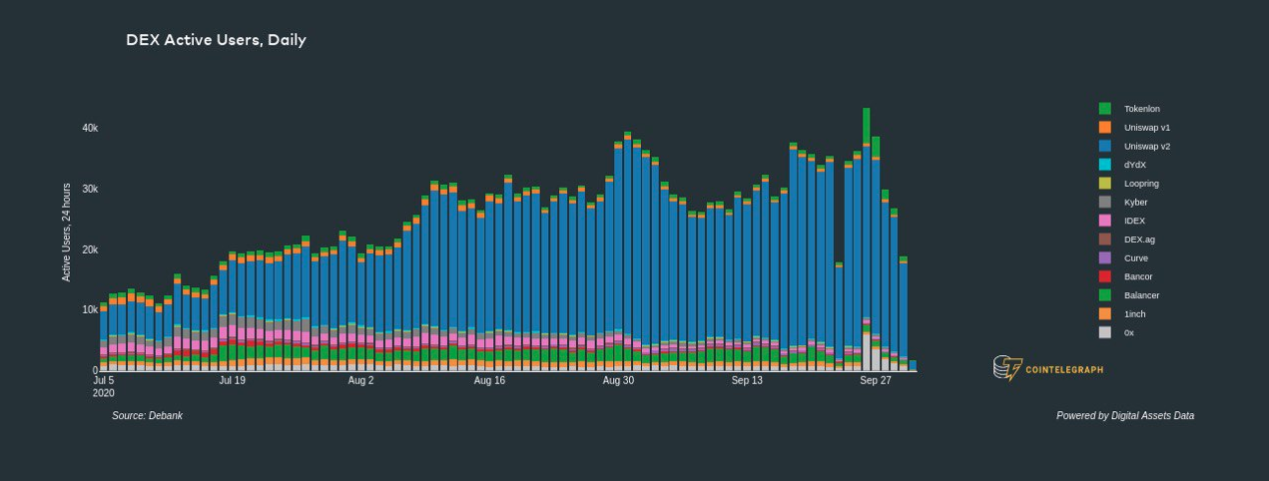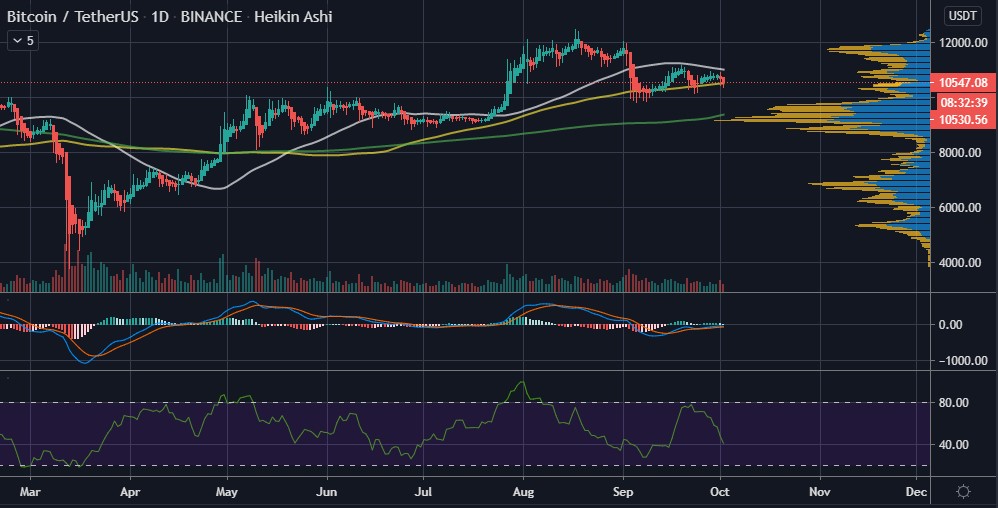Institutionalize crypto markets now: There must be compliance controls
Digital asset markets are subject to various regulations worldwide, but which are the most suitable for the crypto space at the moment?

Image courtesy of CoinTelegraph
 OCT 03, 2020
OCT 03, 2020
Thanks to regulatory uncertainty from the United States Securities and Exchange Commission and a hodgepodge of state licensing requirements, the development of crypto trading in the U.S. remains stuck in the backwaters of trading reserved for Over-the-Counter Bulletin Board issues.
In order to ensure the continued and healthy growth of digital asset markets, it is critical to expand the market share of institutional crypto trading. That’s a better business model for digital asset markets, and it will force U.S. regulators to act quicker. Digital asset markets embracing this will realize that better controls will attract more institutional liquidity, and organizing behind a governing set of control principles is where to start.
Fortunately, the Association for Digital Asset Markets, or ADAM — a consortium of digital asset market players established in 2018 — took the lead in November 2019 by publishing its “Code of Conduct.” (The Asia Securities Industry and Financial Markets Association’s “Best Practices for Digital Asset Exchanges,” published in 2018, is also a good reference.) Its code, which is a must-read for digital asset markets, has eight primary tenets: compliance and risk management, market ethics, conflicts of interest, transparency and fairness, market integrity, custody, information security and business continuity, and Anti-Money Laundering and Countering the Finance of Terrorism.
With this groundwork laid, next comes implementation. Again, there is no need to reinvent the wheel — existing standards and regulations provide guidance that can be tailored to any digital asset market. Turn first to Bermuda to find a regulator that has embraced digital assets and aimed to eliminate regulatory uncertainty. Even Wyoming, boasted as the state with the most progressive digital asset regulatory framework in the United States, modeled its digital asset statutes on Bermuda’s.
Malta also has helpful prescriptive regulation (just turn a blind eye to the implosion of its efforts, generally), followed by New York. I will go a step further here and give you the links to the best provisions of the most relevant resources.
Bermuda’s “Code of Practice” provides straightforward governance, compliance and risk management controls specific to digital asset markets. Mature organizations looking for more comprehensive guidance will want to check out Malta’s “Virtual Financial Assets Rulebook, Chapter 3, Title 3,” which could also be helpful for conflict-of-interest issues relating to operational independence, inducements and personal trading. The best — and most extensive — regulatory guidance for conflicts in financial firms, however, remains the Financial Industry Regulatory Authority’s October 2013 “Report on Conflicts of Interest.”
Implementing sound transparency and fairness controls requires appropriate client disclosures. Bermuda’s client disclosure rules and New York’s virtual currency rules provide the clearest. most helpful guidance.
For market integrity, particularly for U.S. digital asset markets subject to Commodity Futures Trading Commission regulation, Cboe Futures Exchange’s “Rulebook” provides a well-organized resource.
Bermuda’s “Digital Asset Custody Code of Practice” defines standards for digital asset private-key custodians across safekeeping, transaction handling and operations. The SEC’s “Customer Protection” rule and CFTC’s customer fund segregation rules, however, are poorly adapted to digital asset markets, as has been noted by both FINRA and the SEC.
For cybersecurity controls, New York State Department of Financial Services’ “Cybersecurity Requirements for Financial Services Companies” offers a well-rounded checklist, but for custody security, Bermuda’s “Custody Code of Practice” is the best resource. New York’s virtual currency rules provide a helpful business continuity checklist. “Must have” references for chief information security officers in digital asset markets include the National Institute of Standards and Technology’s “Security and Privacy Controls,” “Key Management," “Cryptographic Key Generation” and “Cybersecurity Event Recovery” guides.
Bermuda’s “Prudential Standards” and “Sector-Specific Guidance Notes for Digital Asset Business” provide thorough Anti-Money Laundering guidance and even templates, but the Financial Crimes Enforcement Network — notably, its guidance related to convertible virtual currencies — remains the primary source (of course). For conducting an AML risk assessment, the primary resource should be the “Bank Secrecy Act/Anti-Money Laundering Examination Manual for Money Services Businesses.”
It is time for digital asset markets to take the bull by the horns and start to break the regulatory log jam by leveraging ADAM’s principles and the above resources. Let’s be proactive to get the currents of crypto liquidity flowing through those backwaters!
The author would like to express special thanks to Andrew Kuttin.
This article is for general information purposes and is not intended to be, and should not be taken as, legal advice.
The views, thoughts and opinions expressed here are the author’s alone and do not necessarily reflect or represent the views and opinions of Cointelegraph.
Eric Hess is the founder of Hess Legal Counsel and Helical, Inc. Hess Legal advises securities and digital asset firms on contract, security and privacy, AML, governance, technology licensing, and financing issues. Helical offers a cybersecurity-as-a-service platform. Eric has held CEO, general counsel and other senior legal and regulatory roles for registered equities exchanges, Lehman Brothers and other equities markets, fintech and market data companies.

Markethive Advertisement
Original article posted on the CoinTelegraph.com site, by Eric Hess.
Article re-posted on Markethive by Jeffrey Sloe





































